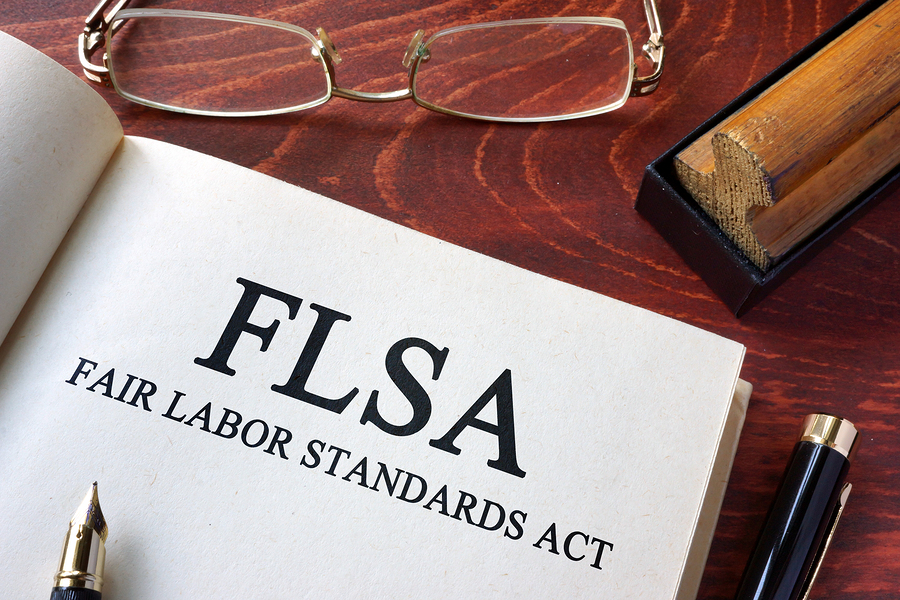By; Rhonda Bunker Director of Sales In the event you aren’t a football fan, the NFL draft just happened. The time of year when coaches and owners are all vying for the same players. You know the ones, the Heisman Trophy winners, the players who could take out a semi truck, the guys who run faster than gazelles. Those are the guys every team wants. The guys who look good on paper, the ones who have gotten the job done in college. It’s probably similar to the strategies you use when picking the right candidates to join your teams. Have…
Posts published in “Uncategorized”
By: Matthew N. Thibaut, Esq. Employment Law Practice Group CIKLIN LUBITZ & O’CONNELL The Fair Labor Standards Act (FLSA) is an extremely technical statute that was enacted in 1938, which is the federal law providing employees overtime protection. Under the FLSA, an employee in the United States is entitled to receive 1.5x their regular rate of pay for hours over 40 unless they are exempt. The most common exemptions are the executive, professional and administrative exemptions, also referred to as the “white collar” exemptions. These exemptions are not determined by occupation, job title or classification, but rather by a two-part test: (1) duties test and (2)…
To pay Weekly or Biweekly (or some other frequency), that is the question. The US Department of Labor (DOL) does not specify any sort of frequency in which employees should be paid minimum wages or the overtime compensation it calls for. Instead the language states that “Wages required by the Fair Labor Standards Act (FLSA) are due on the regular payday for the pay period covered.” While this seems vague, the DOL takes this principal seriously. For example, if an employee fails to record time worked or submit a timesheet, and the employer is aware that work was performed, the…
Going paperless. Some do it to save the environment, some do it to save money, and some do it to save time. No matter what the reason, there are some things to consider when it comes to the payroll process and the payroll check. While the “check” itself becomes obsolete as many individuals go on direct deposit, it is always attached to a check stub, or as we call it, a pay statement, a detail of the employee’s wages, deductions withheld, taxes withheld, and sometimes other important information. According to the United States Department of Labor, the Fair Labor Standards Act…
Late last year, Congress passed what is titled the Protecting Americans from Tax Hikes (PATH) Act of 2015. This past week, the IRS issued Notice 2016-22 which provides guidance and Transition Relief for employers claiming the Work Opportunity Tax Credit (WOTC). If you are not familiar with the WOTC, it is a tax incentive for employers to hire and retain individuals from specific target groups. The groups include certain Veterans, Temporary Assistance for Needy Families (TANF) recipients, Food Stamp recipients, Supplemental Security Income (SSI) recipients, Vocational Rehabilitation (VR) Referred Individuals, Ex-Felons, Summer Youth employees, and effective January 1st, 2016, there is…
Reciprocal agreements relieve employees who work and live in different states from the double burden of paying taxes in both states, requiring payment only to their home state. If any of your employees are subject to reciprocal agreements, you can help them out by withholding income tax for their state of residency. How Reciprocal Agreements Work Many states that impose an income tax have entered into reciprocal agreements. For example, Kentucky has reciprocal agreements with Illinois, Indiana, Michigan, Ohio, Virginia, West Virginia and Wisconsin. Residents of any of those states working in Kentucky are exempt from Kentucky income tax, and would pay and file income…
Today, December 28th, 2015, the Internal Revenue Service issued Notice 2016-4, which extends the due dates for 2015 Information Reporting under I.R.C. sec 6055 and 6056, which includes the 1095-B and C forms and the 1095-B and C forms. This is great news for the many employers faced with the new filing requirements of these forms, and provides them with additional time to get their information together. The extended due date to issue the 1095-B or 1095-C forms to full-time employees has been extended from February 1st, 2016 to March 31st, 2016, as well as an extension of filing the forms to the…
This time of the year is a popular time to give gift cards to your employees as a way of showing appreciation, but you need to be sure it is reported as wages, and they pay tax on the value. Whether it is a $5 Starbucks card to a $50 gift card at a brand store, or even just a Visa gift card for $X amount, you need to include the full value of the gift in the employee’s taxable wages. The IRS considers gift cards as a cash equivalent, no matter what the value, and it does not fall under their…
I have a client with a very interesting scenario in regards to Affordable Care Act (ACA) compliance and their desire to abide by the law. This client is defined as an Applicable Large Employer (ALE) by having greater than 50 Full-time Equivalent employees, therefore is bound by the Employer Shared Responsibility provisions under 4980H of the Internal Revenue Code. If they do not offer affordable health coverage to their full-time employees, they may be subject to a penalty of $2,000 per employee. In this case, the company, not wanting to be penalized, sought a health insurance agent to obtain a…






